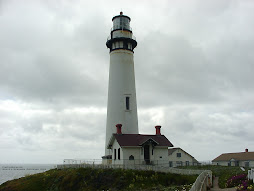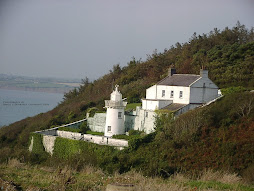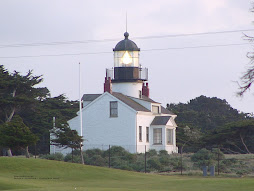Sorry I've been away for awhile, but sometimes distractions do make sense. In any event, please read the prior post on cooking safely and keep those ugly fires inside the cooking equipment where they belong.
Speaking of fire, tonight is of course July 4th and the big fireworks display night and, unfortunately, we'll always have a few idiots who believe they can set off more, bigger and better fireworks than the professionals. In two words... They can't! The emergency room will see quite a few who think they can. Again, They can't!
Fireworks around a boat full of flammable fuel is stupid. No other way to put it. Fireworks set off by people sotted with booze, and around vessels laden with combustibles and flammable gasoline is downright lunacy, and criminal behavior at best. A fire started in such a manner is a felony in most states and if someone is injured, or God forbid, killed, the person playing with the pyrotechnics could end up facing manslaughter charges or worse.
So, let the professionals set off the fireworks displays and just sit and enjoy them. If you don't have to get behind the wheel of a boat or vehicle, pop open a cold one and enjoy the show and count your blessings for a Free USA. Oh yeah, count your eyes and fingers while you're at it too, since there is a good chance if you played with those pyrotechnics yourself, you might be missing a digit or two, or not be able to see the beautiful fireworks display.
Take it from one who has seen many years of the beauty and the beast in pyrotechnics, gone good and gone bad. You never want to see the bad side, believe me.
Happy Fourth of July and have a Safe Summer.
Safe Boating.
Top 60 Boating Tips by Boating Magazine
Sunday, July 4, 2010
COOKING SAFETY
Well, many of you will want to know what makes me an expert on cooking safety. I don't cook much, still have all my fingers, some of my hair, and haven't burned up my boat, so I'm at least one up on a few commercial boaters in Southern California. But, seriously, cooking accidents are especially dangerous aboard a boat, and a few precautions can reduce the risk to you and your boat.
Alcohol Stoves:
Some older vessels still have alcohol stoves. NEVER fill a hot stove. On a pressurized stove, let the stove cool before bleeding off pressure and filling. On a cartridge or canister type stove, let the canister cool before filling, and ALWAYS remove the canister from the stove before filling. Remove extra alcohol from the area where you are cooking. Keep spare fuel tightly capped, and stowed where the container will not rust through. Wipe up spilled fuel immediately. And, keep a small spray bottle filled with water near the stove. A fine mist will tame alcohol flare ups, and repeated mist sprays will usually extinguish a small cooking fire. DO NOT use a straight stream; this will only spread the burning alcohol, or grease, to other areas.
LPG & CNG:
If you use liquid propane gas (LPG) or compressed natural gas (CNG), check the appliances and all supply lines regularly for leakage. Be sure regulators and solenoids, if equipped, are working properly. If you use LPG, the preferred tank location is above decks, away from openings where escaping vapors could enter the enclosed spaces of your vessel. If your tank is in an enclosure, designed for LPG storage, be sure the vents are free of blockage and there are no openings that will allow gas to seep into the bilge. Check the tanks frequently. If a tank is damaged, or severely rusted or corroded, replace it. With CNG, refuse to accept exchange tanks that are damaged or deteriorated. And, shut off the supply at the tank when the system is not in use.
Install a gas vapor detector in the engine and bilge spaces of the boat if you use LPG. Vapors are heavier than air, and a leak can go undetected, while filling your bilge and engine spaces with explosive vapors.
Barbecues:
Some people combine business and pleasure by having a gas barbecue on board, either the type that uses the small disposable cylinders. Always store the cylinders above decks, and take the same precautions you would with larger tanks. These cylinders, containing sixteen to twenty ounces of LPG, can put enough gas vapor in your boat to destroy it at the slightest spark. Consider a mesh bag tied to a deck stanchion or railing where the cylinders will not be damaged yet receive plenty of ventilation. If your deck cooking arrangement is plumbed into the LPG/CNG gas system of the vessel, it deserves the same respect and care as the galley stove. Check the supply lines regularly for damage or corrosion.
If you use charcoal for occasional deck cooking, be sure it's COMPLETELY cool before disposing of the coals. While the briquettes can be only warm on the outside, the centers can still be glowing hot, sometimes for up to eighteen hours after cooking. I have personally witnessed fires started like this. And, don't use flammable liquids, such as gasoline, for igniting the briquettes. Use starter fluid, starter cubes or similar to ignite your fire.
Be sure to have a fire extinguisher in the galley area, so it is ready for use if needed. Don't mount it over the stove, where you won't be able to reach it if there is a fire. Keep an extinguisher on deck near your cooking area too.
A fire on board can be a terrifying ordeal for all. Cook safely, and you won't have all those extra guests, from the Coast Guard, Harbor Patrol or from the fire department, on your boat at chow time. They really won't mind not being invited.
Alcohol Stoves:
Some older vessels still have alcohol stoves. NEVER fill a hot stove. On a pressurized stove, let the stove cool before bleeding off pressure and filling. On a cartridge or canister type stove, let the canister cool before filling, and ALWAYS remove the canister from the stove before filling. Remove extra alcohol from the area where you are cooking. Keep spare fuel tightly capped, and stowed where the container will not rust through. Wipe up spilled fuel immediately. And, keep a small spray bottle filled with water near the stove. A fine mist will tame alcohol flare ups, and repeated mist sprays will usually extinguish a small cooking fire. DO NOT use a straight stream; this will only spread the burning alcohol, or grease, to other areas.
LPG & CNG:
If you use liquid propane gas (LPG) or compressed natural gas (CNG), check the appliances and all supply lines regularly for leakage. Be sure regulators and solenoids, if equipped, are working properly. If you use LPG, the preferred tank location is above decks, away from openings where escaping vapors could enter the enclosed spaces of your vessel. If your tank is in an enclosure, designed for LPG storage, be sure the vents are free of blockage and there are no openings that will allow gas to seep into the bilge. Check the tanks frequently. If a tank is damaged, or severely rusted or corroded, replace it. With CNG, refuse to accept exchange tanks that are damaged or deteriorated. And, shut off the supply at the tank when the system is not in use.
Install a gas vapor detector in the engine and bilge spaces of the boat if you use LPG. Vapors are heavier than air, and a leak can go undetected, while filling your bilge and engine spaces with explosive vapors.
Barbecues:
Some people combine business and pleasure by having a gas barbecue on board, either the type that uses the small disposable cylinders. Always store the cylinders above decks, and take the same precautions you would with larger tanks. These cylinders, containing sixteen to twenty ounces of LPG, can put enough gas vapor in your boat to destroy it at the slightest spark. Consider a mesh bag tied to a deck stanchion or railing where the cylinders will not be damaged yet receive plenty of ventilation. If your deck cooking arrangement is plumbed into the LPG/CNG gas system of the vessel, it deserves the same respect and care as the galley stove. Check the supply lines regularly for damage or corrosion.
If you use charcoal for occasional deck cooking, be sure it's COMPLETELY cool before disposing of the coals. While the briquettes can be only warm on the outside, the centers can still be glowing hot, sometimes for up to eighteen hours after cooking. I have personally witnessed fires started like this. And, don't use flammable liquids, such as gasoline, for igniting the briquettes. Use starter fluid, starter cubes or similar to ignite your fire.
Be sure to have a fire extinguisher in the galley area, so it is ready for use if needed. Don't mount it over the stove, where you won't be able to reach it if there is a fire. Keep an extinguisher on deck near your cooking area too.
A fire on board can be a terrifying ordeal for all. Cook safely, and you won't have all those extra guests, from the Coast Guard, Harbor Patrol or from the fire department, on your boat at chow time. They really won't mind not being invited.
Labels:
barbecues afloat,
CNG,
cooking safety,
galley duty,
LPG
Subscribe to:
Posts (Atom)











